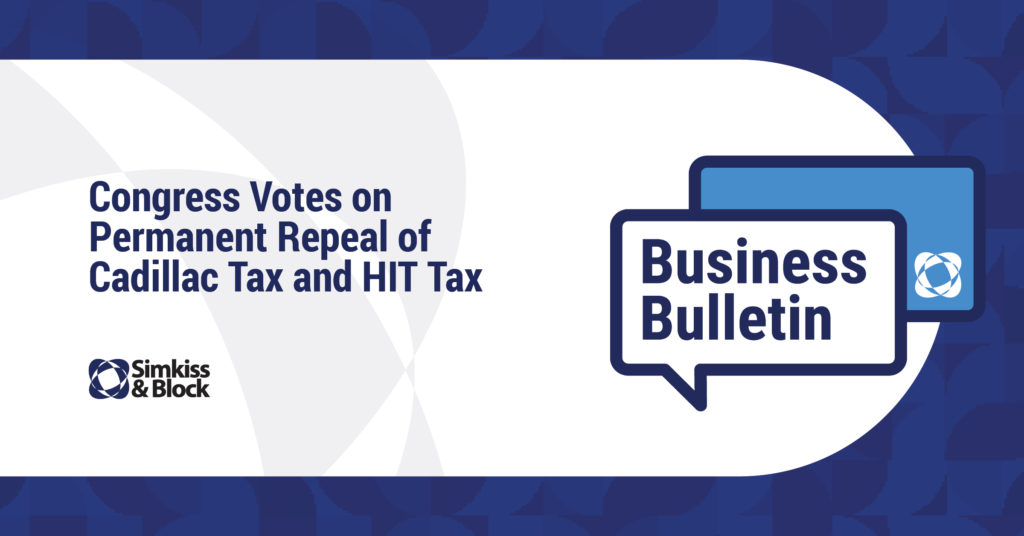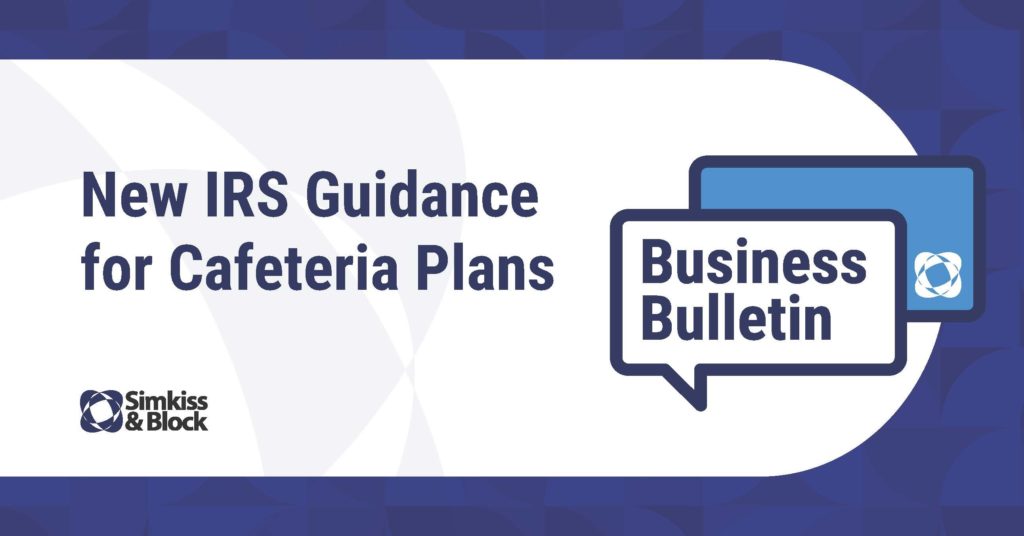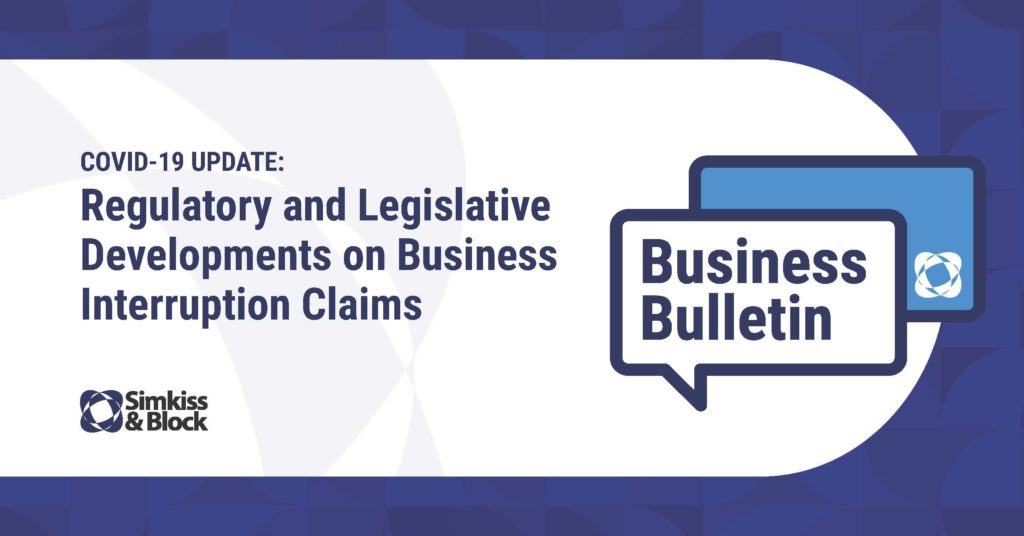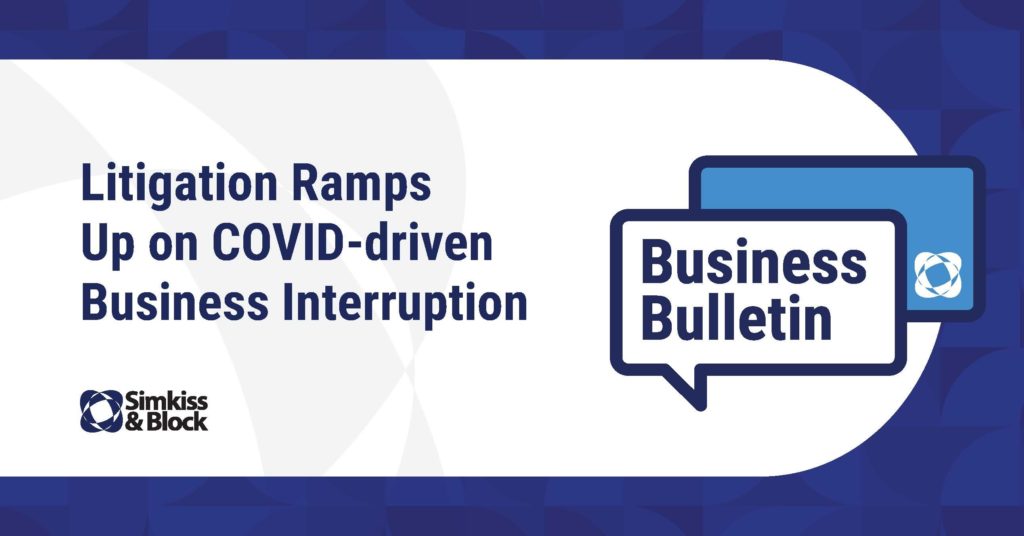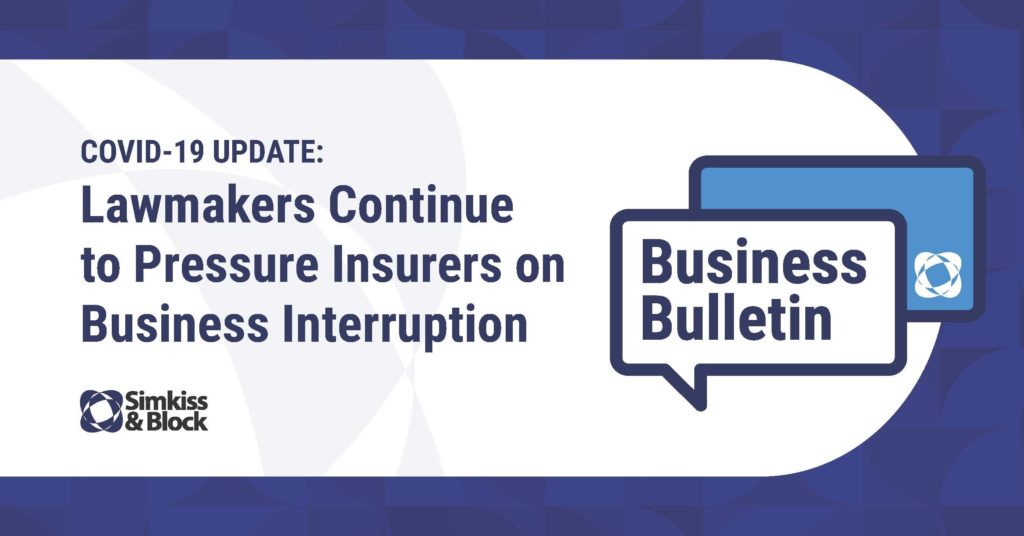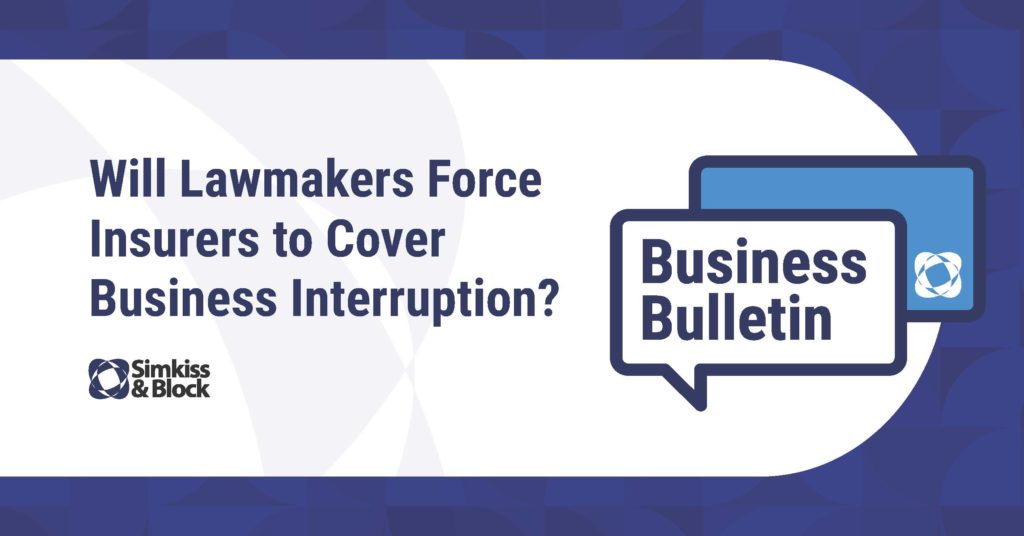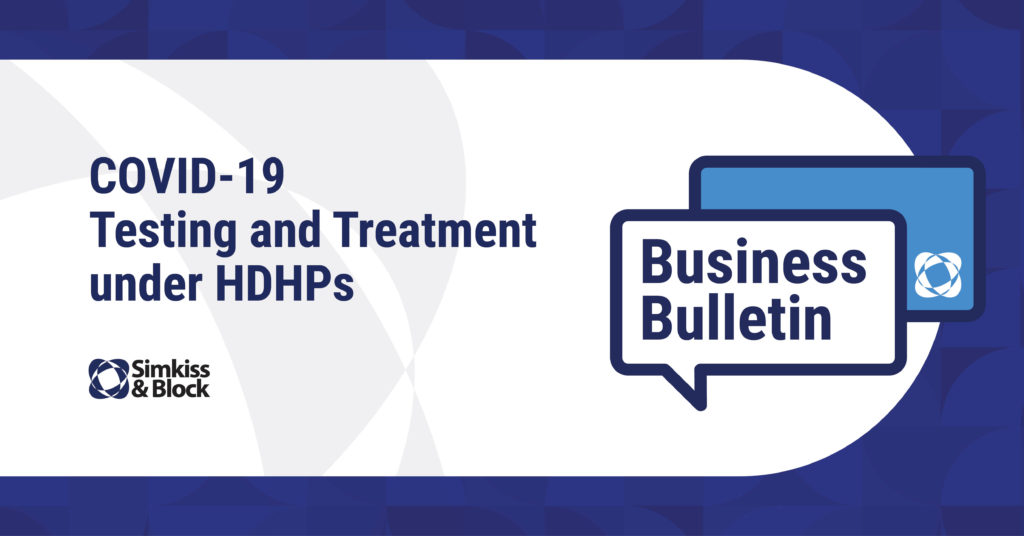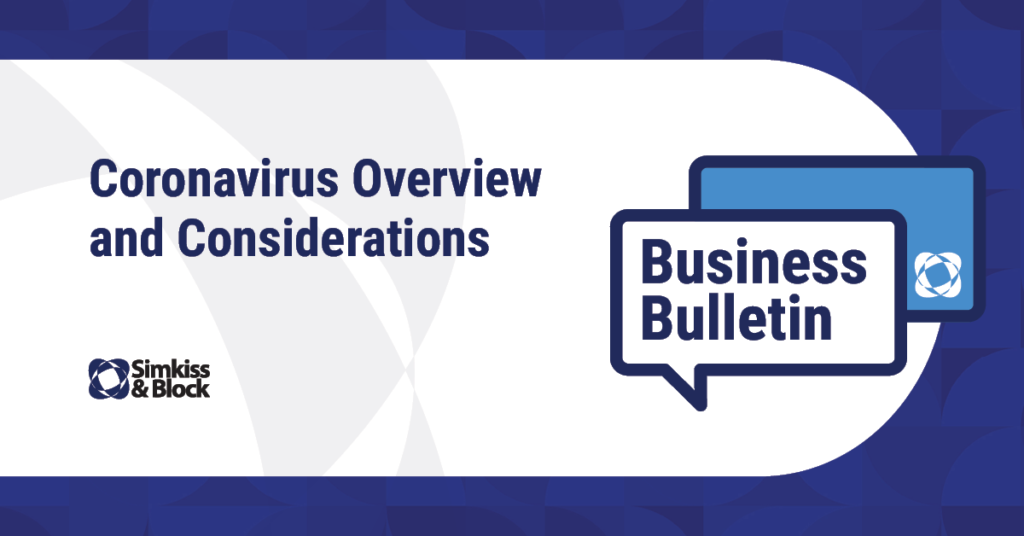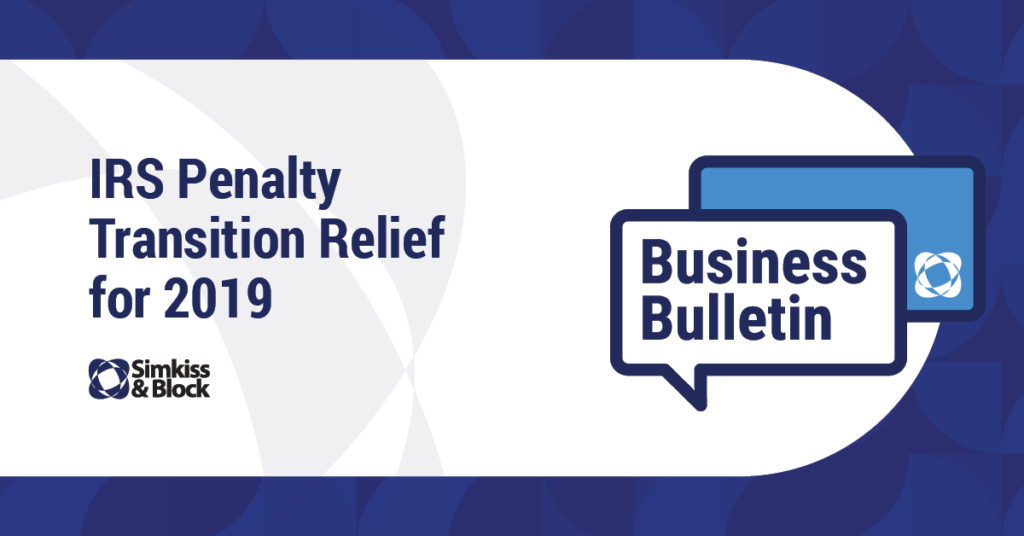Congress is considering a bill to fully repeal the Cadillac Tax and the Health Insurance Tax (HIT) in an end of year spending package that is expected to be voted on Tuesday in the House and Wednesday in the Senate.
The Cadillac Tax will go into effect in 2022 and the HIT tax is set to take effect again in 2020. The legislation will immediately repeal the Cadillac/Excise Tax, and the HIT Tax will be repealed effective January 1, 2021. The Affordable Care Act (ACA) imposes the 40% Cadillac Tax on employers to encourage them to choose lower cost health plans for their employees and raise revenue to fund other ACA provisions. The HIT Tax will impact companies that offer employer-sponsored health plans through higher premiums. Due to the heavy financial burden these taxes will place on employers, many would be forced to raise deductibles or otherwise increase employee costs to stay under the Cadillac Tax maximum monthly premiums.
If you oppose these taxes, contact your Senators and Representative today and ask them to fully repeal the Cadillac/Excise Tax and HIT Tax. Find your Representatives here and find your Senators here.
Cadillac Tax Overview
The Cadillac Tax calls for a 40% excise tax on the employee’s “excess benefit”, if any, by which the aggregate cost of the employee’s employer sponsored coverage for the month exceeds 1/12 of the annual limitation for that calendar year. The annual limit is generally $10,200 for individuals and $27,500 for families, adjusted annually to the Consumer Price Index plus 1%.
Given the pace of healthcare growth, the Cadillac Tax is destined to outgrow itself quickly and many employers will be impacted by the tax. According to the Kaiser Family Foundation, 21% of employers offering health benefits in 2022 would be impacted by the Cadillac Tax. These percentages are expected to grow significantly over time. Understandably, many employers are attempting to find ways to avoid having to pay the tax, including offering less generous coverage, but also shifting some of the cost burden onto consumers through higher co-pays and co-insurance or by making the employee pay a greater portion of the premium.
Health Insurance Tax (HIT) Overview
The HIT Tax assesses a tax on all health insurance companies of insured plans based on their “net premiums” written. While it is charged to insurers to help pay for the ACA, the cost is ultimately passed down to employers in the form of increased premiums. Over a 10-year period, this tax is projected to increase premiums for single coverage by an average of $2,150 and family coverage by an average of $5,080.
If your health insurance broker is not keeping you updated on legislative and regulatory requirements, contact Simkiss & Block for a consultation.

